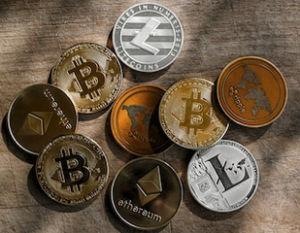Crypto sell-off has sparked a widespread panic in the market, making many investors worried. A broad-based selling led to a crash-like situation in the crypto market on Monday, with Bitcoin, Ether, Solana, and all big names trading heavily in the red.
Despite all this, big players in the industry remained confident and heightened their confidence in Bitcoin.
Crypto sell-off does not affect Bitcoin holders
The biggest players in the industry, like Matt Hougan, Samson Mow, and Michael Saylor, did not let the broad crypto sell-off affect their confidence. Posting on the social media platform X, they all showed affection towards Bitcoin.
Matt Hougan explained that a sell-off will only help Bitcoin prices go up in the future. He further explained that people hit the sell button on liquid assets in widespread panics. For him, however, today’s events are part of the bigger picture for Bitcoin.
The last time global capital markets panicked was March 12, 2020, when the reality of COVID set in.
Bitcoin's price fell 37% that day, from $7,911 to $4,971. A year later, it was $57,332.
People smash the sell button for liquid assets during broad-based panics. But from my…
— Matt Hougan (@Matt_Hougan) August 5, 2024
Samson Mow kept his sentiments upbeat, predicting the $1 million level for Bitcoin by next year. Michael Saylor, on the other hand, had a “Hold” posted on his X account, indicating that despite a state of panic, he was planning on holding on to his share of Bitcoins.
$1M #Bitcoin in the next year is far more likely now.
Few.
— Samson Mow (@Excellion) August 5, 2024
HODL pic.twitter.com/qIMam5yFaI
— Michael Saylor
(@saylor) August 5, 2024
Crypto sell-off: what happened?
According to CNBC, the price of Bitcoin was down 8% on Monday at $53,996.70. It dropped as low as $49,111.10 at one time, the lowest since February 13. On July 20, just seven days earlier, it reached a high of $69,982.
The bitcoin and crypto crash comes after a larger market sell-off that started last week. Lower-than-expected July jobs data rekindled investor concerns about a recession, causing a correction in the tech-heavy Nasdaq Composite.
Additionally, after falling more than 12% overnight, the Japanese stock market entered a bear market on Monday, marking the largest one-day sell-off since 1987. The worst day for Japanese bank equities since 2008 occurred on August 2, when the central bank chose to raise interest rates.
Over the course of three days, this sudden market crash erased roughly $500 billion from the cryptocurrency market’s total value, making it the largest 72-hour loss in nearly a year.












